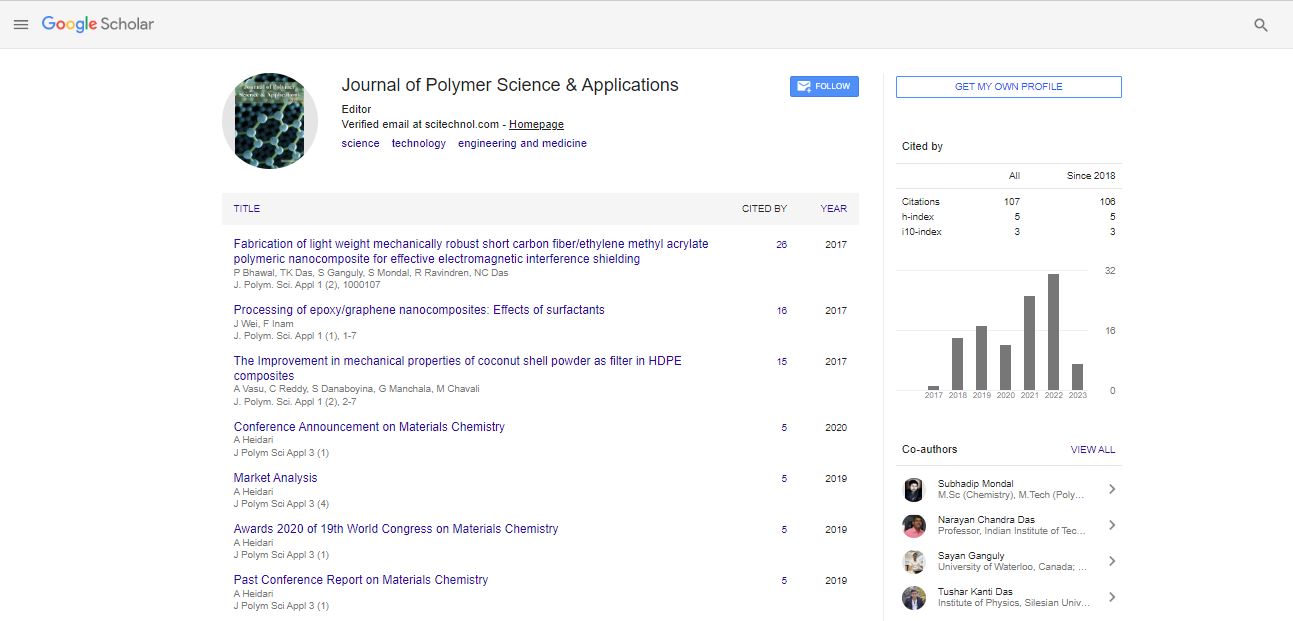Perspective, J Polym Sci Appl Vol: 7 Issue: 3
Data Analytics and the Future of Automotive Manufacturing
Ziyan Sun*
1Department of Mechanical Engineering, The University of Tokyo, Chiba, Japan
*Corresponding Author: Ziyan Sun,
Department of Mechanical Engineering, The
University of Tokyo, Chiba, Japan
E-mail: ziyan.sun@ut.jp
Received date: 28 August, 2023, Manuscript No. JPSA-23-116962;
Editor assigned date: 30 August, 2023, Pre QC No. JPSA-23-116962 (PQ);
Reviewed date: 14 September, 2023, QC No. JPSA-23-116962;
Revised date: 22 September, 2023, Manuscript No. JPSA-23-116962 (R);
Published date: 29 September, 2023, DOI: 10.4172/Jpsa.1000148
Citation: Sun Z (2023) Data Analytics and the Future of Automotive Manufacturing. J Polym Sci Appl 7:3.
Description
The automobile industry, once characterized by mechanical engineering and craftsmanship, is undergoing a profound transformation. This transformation is driven by the integration of big data, which is revolutionizing every aspect of the automotive ecosystem. Big data, a term used to describe the vast amount of structured and unstructured data generated by various sources, including sensors, connected vehicles, customer interactions, and manufacturing processes, is empowering automakers and stakeholders to make data-driven decisions that enhance safety, performance, customer experience, and sustainability. The automotive industry is no stranger to data. For decades, vehicles have been equipped with sensors to monitor performance, safety, and emissions. However, the recent explosion of data sources and the ability to store, process, and analyze this data at scale have opened up new possibilities. Now, vehicles are equipped with a multitude of sensors, from GPS and accelerometers to cameras and radar, collecting data on everything from engine performance to driver behavior. This data is transmitted to the cloud and can be analyzed in real-time.
One of the most transformative applications of big data in the automobile industry is in safety and driver assistance. Advanced Driver Assistance Systems (ADAS), which include features like adaptive cruise control, lane-keeping assist, and automatic emergency braking, rely heavily on real-time data. For example, adaptive cruise control uses data from radar and cameras to maintain a safe following distance. If a vehicle suddenly merges in front, the system can automatically apply the brakes to avoid a collision. These systems not only enhance safety but also serve as building blocks for autonomous vehicles. Big data analytics enable vehicles to process the enormous amount of information required for autonomous driving, making realtime decisions based on factors like traffic conditions, weather, and pedestrian movement. Big data is reshaping the customer experience in the automotive industry. Manufacturers are leveraging data to understand customer preferences and behaviors, tailoring their offerings accordingly. For instance, data analytics can reveal which features are most used and appreciated by drivers. Manufacturers can then prioritize these features in future models, leading to greater customer satisfaction.
Connected cars, which have become increasingly common, provide a continuous stream of data about their usage and performance. Manufacturers can use this data to offer predictive maintenance services, alerting drivers when a part is likely to fail and scheduling a repair. This not only enhances convenience for the driver but also reduces vehicle downtime and maintenance costs. Big data is not limited to vehicle performance and customer experience; it's also transforming the way vehicles are manufactured. Manufacturing processes generate vast amounts of data, from machine performance to quality control metrics. This data can be analyzed to identify inefficiencies, optimize production, and reduce defects. Predictive maintenance powered by big data can help prevent equipment failures on the assembly line, avoiding costly downtime. Moreover, supply chains are benefiting from data analytics. Manufacturers can track the movement of parts and materials in real-time, optimizing logistics to reduce costs and minimize delays. This level of transparency is invaluable for just-in-time manufacturing processes. The automobile industry is under increasing pressure to reduce its environmental impact. Big data can play a crucial role in achieving sustainability goals. For instance, data analytics can help manufacturers reduce vehicle weight by identifying opportunities for lightweight materials without compromising safety.
Big data is driving a revolution in the automobile industry. From enhancing safety and driver assistance to optimizing manufacturing and promoting sustainability, data analytics is at the heart of these transformations. However, the industry must address concerns about data privacy and security while continuing to invest in the technical infrastructure needed to harness the full potential of big data. As the role of data in the industry continues to grow, we can expect more innovative and data-driven solutions that will redefine the way we drive, manufacture, and interact with vehicles.
 Spanish
Spanish  Chinese
Chinese  Russian
Russian  German
German  French
French  Japanese
Japanese  Portuguese
Portuguese  Hindi
Hindi 